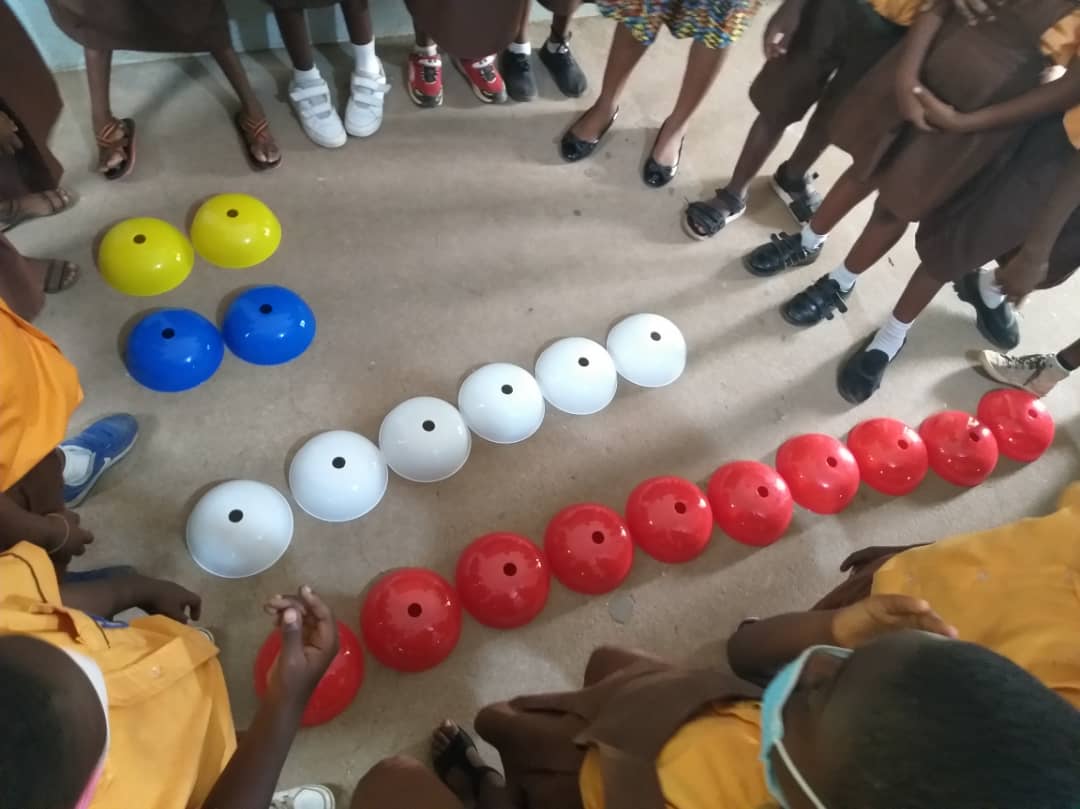You are here
- Home
- Research
- Projects
- Centre for the Study of Global Development
- Research
- The Partners in Play Project (P3) baseline evaluation
The Partners in Play Project (P3) baseline evaluation

Principal Investigator: Prof Kwame Akyeampong
Co-investigators (The Open University): Dr Eric Addae-Kyeremeh, Dr Jane Cullen and Dr Helen Hendry
Co-investigators (University of Cape Coast): Christopher Kwaah and Dr Esinam Avornyo
Focus Country: Ghana
Dates: 2020-ongoing
Learning through play is an important way for children to develop foundational numeracy and literacy skills, whilst at the same time allowing children to develop their socio-economic skills and helping to bridge the divide between learning in school and in the home environment. The Partners in Play (P3) program in Ghana aims to improve the quality of education for girls and boys aged 4-12 using a scalable and replicable Learn Through Play (LtP) model. The program intends to reach 689,920 children in three regions – Greater Accra, Northern Region, and Volta Region.
In this baseline evaluation, The Open University and University of Cape Coast – Ghana undertook a large-scale survey of children, teachers, caregivers and headteachers as well as observations and interviews with educational leaders and administrators. The team were interested in finding current levels of children’s life skills along with current awareness, knowledge and capacity to support play-based learning approaches in schools.
What did the evaluation find?
-
That generally, children have low socioemotional skills but particularly low stress management skills.
-
Children felt play had learning value, but many did not associate play directly with the development of foundational literacy and numeracy skills.
-
Teachers’ understood the importance of play in developing foundational literacy and numeracy skills but were less inclined to use play-based learning approaches because of inadequate training and a preference for direct instruction.
-
Caregivers felt play had more value in developing social skills than academic skills, and that direct instruction should be prioritised over play-based instruction. Only a few felt there was value in combining play and direct instruction.
-
Education officials felt that a key barrier to achieving effective play-based learning in Ghanaian schools is sustainable financing to provide training and play-based learning resources for teachers to use in classrooms.
Contact Us
Whatever your reasons for wanting to connect with us, you can contact us via email or social media on the addresses below
Email: CSGD@open.ac.uk
Twitter: @OU_CSGD
Sign up to our mailing list to receive the latest news on our research, events and publications.
.jpg)